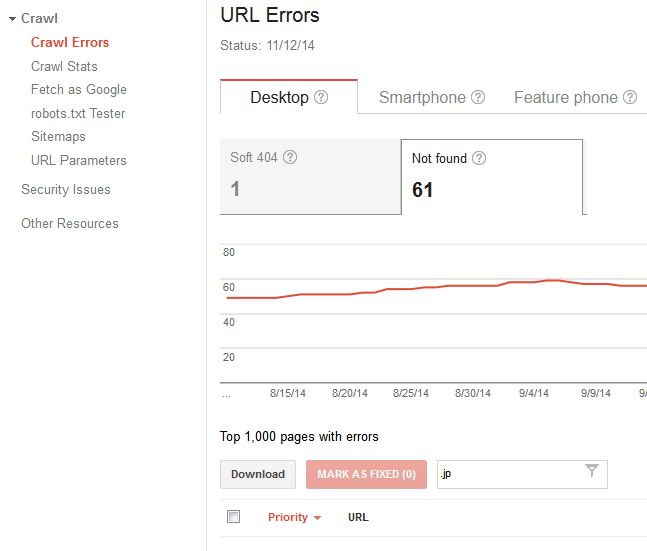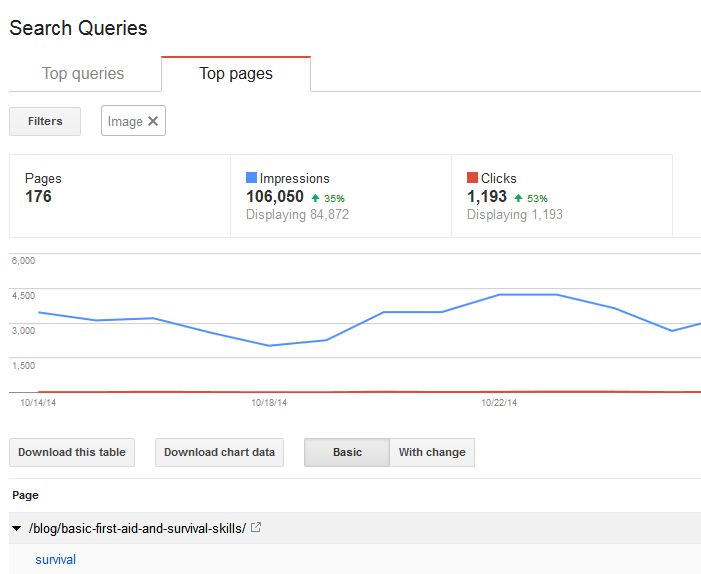URLs that images live on can serve a 404 error. This point is not necessarily up for debate, as I have verified it on multiple sites and it is an excellent way to deal with images that are no longer in place (sure you could redirect the URL, rel canonical, etc., but we don’t need to go there in this post). This post is to address a very niche questions, one that 99.99999% of the world really wont care about, but that SEO people generally like to hear about. The question is, can an old URL that an image used to live on serve a 404 error that will be registered in the crawl errors report in webmaster tools. Here are some things to think about.
Does the Image Actually Live on its Own URL
In order for an image to serve a 404 it needs to live on its own URL. Here is an example of an image that lives on a URL (https://ignitevisibility.com/wp-content/uploads/2014/11/mobile-2014-statistics-facts.jpg). The reason I point this out is because many times an image is pulled from a URL, but is not actually live on a URL. So it needs to be live on a URL to be broken and serve a 404 like so (https://ignitevisibility.com/wp-content/uploads/2014/11/mobile-2014-statistics-fddacts.jpg).
Is the Image Delivered from a CDN or Subdomain
In many cases, images are delivered from content delivery networks or subdomains. The reasons this is important is because webmaster tools is set up on a subdomain level. So if you do not have webmaster tools installed on that subdomain, it would be impossible to see 404 errors for images in either a crawl errors report or image sitemap report.
Crawl Errors Report and Image Sitemap Report
Google does not display information on image URLs serving a 404 in crawl errors report.
As far as the image sitemap report is concerned, I reviewed 10 image sitemaps but was unable to find any 404 errors.
In addition, Google does not show image URLs in the top pages report when filtered by image. In this report, however, Google does show the URL the image lives on.
While this is the case, Google will let you fetch an image URL with fetch as Googlebot tool.
After doing analysis in this area, it appears Google is only reporting on URLs with a /, .html or .pdf (generally). Google does not report on URLs that end in image extensions.

